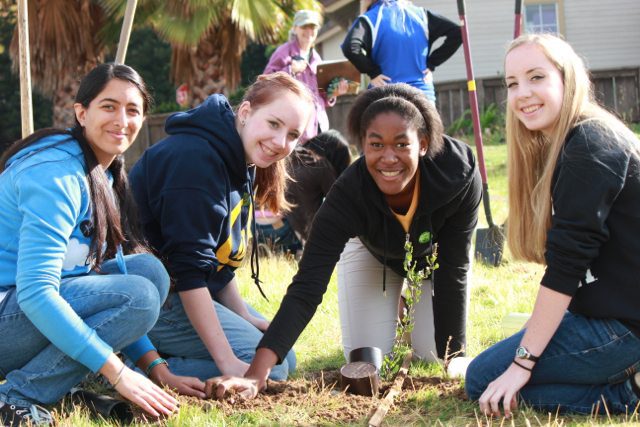The California Regional Environmental Education Community (CREEC) Network program has a new structure that will promote increased collaboration among educators through three new CREEC Network hubs: CREEC North, CREEC Central, and CREEC South.
“The new CREEC Hub structure is helping in counties where the county office of education is unable to bring people in the education system together with educators from environmentally focused community-based partners,” said Shannon Gordon, Education Programs Consultant for the California Department of Education.
The new structure will help regions pool resources to ultimately create statewide change.
“We have evolved the program to better meet the needs of people in the education system and work with available funds,” Gordon said. “Many counties in the CREEC Network are bringing people in the formal education system together with educators and others (e.g., scientists) from community-based partners. They are using a variety of funds to do this, and they are connected with others doing similar work through the CREEC Network. We hope the CDE continues to receive funds that we can allocate to work aligned with the goals of the CREEC Network program.”
Over the next few months, we’ll be highlighting these three regional recipients and the CDE’s role in them, beginning today with CREEC North.

Nathan Fairchild (he/him) is currently helping to lead the CREEC North Hub and has spent years helping to lead CREEC Region 2. Nathan began his career as an interpretive park ranger and educator and then moved into environmental education before becoming a classroom teacher in 1994. Nathan has been the Director of Science at the Shasta County Office of Education since 2014, providing science support to teachers, directing Whiskeytown Environmental School and Schreder Planetarium, and acting as the liaison with charter schools.
Why are you passionate about working in environmental education?
Our planet has been at a pivotal point for decades, and it’s only getting sharper as time goes on. Climate change has to be addressed. When we increase opportunities for people to experience the overlap between science and nature, we give people the tools they need to invest in environmental action.
How do you see the work to bring environmental education into classrooms benefit students?
Implementing environmental education into classrooms connects students to their local ecosystems and nurtures social-emotional learning. It helps students excel academically and prepares them to become climate leaders.
Nature is inherently equitable and integrates science with youth’s natural curiosity about the world around them. I’m hoping to see more subjects, such as math and social studies, integrated into environmental education.
The CREEC grants were allocated to megaregions that encompass a broad area. What benefits does that offer?
The Northeastern region of California is incredibly diverse and home to some of California’s most amazing natural areas. We’ve seen the impact of bringing nature into the classroom for students, but we’ve also learned about the numerous obstacles facing educators seeking to implement environmental education.
With this grant from CREEC, we have been able to address the challenges facing educators in this region. We are providing teachers with access to high-quality professional learning opportunities and education resources. We have also connected educators into a regional network of teachers and community-based partners, which fosters a diverse community of leaders, partners, and experiences.
The grant gave us the opportunity to bring together a broad swath of leaders who are passionate about bringing environmental literacy into the classroom. The relationships that have been built between these educators in different counties have united the region in a shared dedication to climate education.
How will you accomplish your goals with this grant?
We are using the grant to support actionable work in implementing environmental education in classrooms. To ensure we are making the most of these resources, we are constantly evaluating how effectively we are using the grant to drive impact for students, and how we can improve.
How have things evolved since when you first entered the field of education?
I’ve been working in education since the 1980s, and since then there have been a lot of changes and a lot of growth. We’ve definitely seen environmental education move into the classroom more, not that it’s in every classroom yet. But now environmental literacy is baked into our standards. We have the Environmental Principles and Concepts (EP&Cs) embedded in the California Science Framework. People are starting to realize, “when I’m working in nature, I’m working in science,” so we’re seeing positive changes in that way.
What are you hoping to see in the future?
I’m hoping to see a big resurgence of outdoor science schools. Between fires, COVID, lack of funds, and other problems, we’ve seen a lot of struggles there. My hope is that there’s a huge comeback, and we’re already seeing it beginning. I was recently updated that one outdoor science school is full and passing its waitlist on to other nearby schools. So I’m hopeful.






